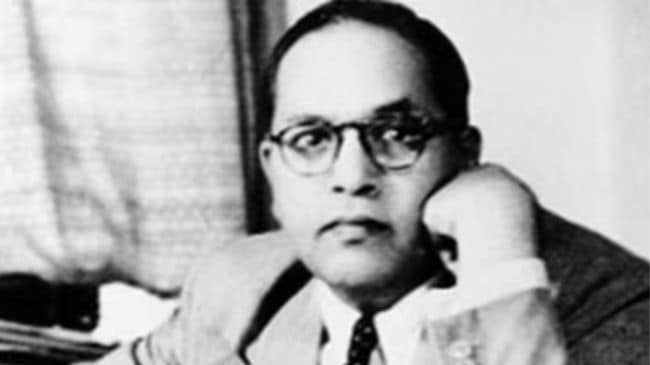Opinion More Indians are studying abroad every year. But not everyone has access to that dream
As India approaches a century of independence, there is growing hope that higher education abroad will become more accessible and inclusive
 Higher education plays a vital role in shaping societies by fostering critical thinking, promoting innovation, and equipping individuals with the tools to address complex social challenges. (Express File Photo)
Higher education plays a vital role in shaping societies by fostering critical thinking, promoting innovation, and equipping individuals with the tools to address complex social challenges. (Express File Photo) Written by Rajesh Ranjan
Chief Justice of India Justice B R Gavai, while addressing a convocation ceremony at the National Academy of Legal Studies and Research (NALSAR) in Hyderabad, remarked: “The pressure to pursue a Master’s degree abroad — it has become a symbol, a brand, a passport to validation. If you wish to go, it broadens your horizons. It teaches you how the world thinks. But please, go with scholarship and funding. Go with purpose, not pressure.”
His words resonate strongly in the context of a growing trend among Indian students seeking higher education overseas.
According to data from the Ministry of External Affairs, the number of Indian students going abroad for studies has steadily increased over the years: From 2.6 lakh in 2020, to 4.45 lakh in 2021, then 7.52 lakh in 2022, peaking at nearly 8.95 lakh in 2023. While 2024 saw a slight dip to 7.6 lakh, the overall trajectory reflects a sustained and significant interest in international education. How many of these students come from marginalised backgrounds? There are no concrete studies to document the number of marginalised students who apply for higher education abroad.
Meritorious scholarships are marketed by universities as beacons of equal opportunity. However, a closer examination would reveal that these acclaimed scholarships, far from being great equalisers, frequently serve to reinforce deeply entrenched caste and class disparities.
But this is not a recent phenomenon. Historically, access to higher education in India has been limited, concentrated largely in urban centres, and dominated by privileged caste and class groups. For decades, institutions of higher learning, even in India, remained inaccessible to large sections of society, both geographically and socially.
Research and scholarship were often shaped by, and catered to, the needs and worldviews of a narrow elite. Over time, affirmative action, the expansion of public universities, and grassroots movements for educational equity have begun to challenge this imbalance. However, the legacy of exclusion still casts a long shadow. Historically, Brahmins and others from the upper castes have had access to higher education abroad, and it is rooted in colonial-era advantages.
Thus, the aspiration to study abroad must also be seen in this context — not just as a pursuit of academic excellence, but often as a quest for validation, visibility, and access to networks historically denied to several communities.
Therefore, the “study abroad” dream is no longer the sole domain of India’s urban elite. However, systemic barriers persist, particularly along caste lines. Although financial tools like scholarships have broadened access, Dalit and tribal students remain disproportionately underrepresented abroad. In recent years, this underrepresentation has been partially challenged by the efforts of the British High Commission in India through the Chevening Scholarship. The Chevening programme in India is the largest in the world, benefiting over 3,900 scholars and fellows since 1983.
The proportion of scholars selected from smaller towns has grown significantly, from under 20 per cent in 2015 to nearly 60 per cent this year, as per the High Commission. The partnership with the Jharkhand government (under the Jaipal Singh Munda Scholarships scheme) supports scholars from marginalised communities and minority groups. On gender equity, 50 per cent of chosen Chevening scholars and fellows are women.
In my experience, several scholars in recent years have come from historically oppressed groups. This model can be replicated to democratise higher education abroad. Higher education plays a vital role in shaping societies by fostering critical thinking, promoting innovation, and equipping individuals with the tools to address complex social challenges.
It is not merely a pathway to personal growth, but a driver of collective progress. In countries like India, defined by deep socio-economic and cultural diversities, higher education becomes a transformative force for equity, inclusion, and systemic change.
For example, think of B R Ambedkar. His academic journey at Columbia University and the London School of Economics sharpened his understanding of law, rights, and social justice. It was in these global spaces that he developed a deep commitment to equality, liberty, and fraternity, which now form the bedrock of the Indian Constitution. Without that exposure, would India have had such a progressive framework for democracy, affirmative action, and civil liberties?
What would have been the fate of India’s tribal movement if Jaipal Singh Munda had not studied at Oxford? His global education not only gave him the confidence to represent tribal voices on national and international platforms but also enabled him to articulate Adivasi aspirations with clarity and conviction. He didn’t just speak for tribal India; he redefined its place in the national imagination. Both leaders transformed their global education into powerful tools for local empowerment.
Global education cultivates visionary leadership, bridges global ideals with local realities, and reorients nations toward justice, dignity, and inclusion. As India approaches a century of independence, there is growing hope that higher education abroad will become more accessible and inclusive. With the active support of civil society, inter-governmental partnerships, and progressive policy interventions, the path to global education can be further democratised, ensuring that students from all regions, castes, classes, and communities have an equal opportunity to learn, lead, and contribute on the global stage.
The writer is a lawyer-researcher and Chevening scholar





